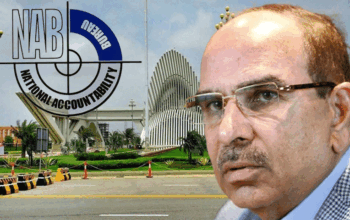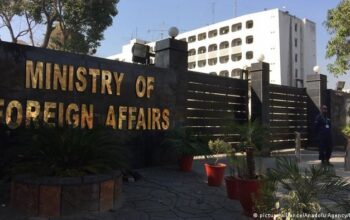By Staff Reporter
ISLAMABAD: A 33-month-old boy from Pakistan’s volatile northwest has been paralysed by polio, marking the country’s 12th case this year and intensifying fears that a disease nearly wiped out globally is regaining ground.
Confirmed this week in Khyber Pakhtunkhwa province, the case lays bare Pakistan’s struggle to eradicate polio amid rising vaccine refusals and a virus creeping through its cities and villages.
“The Regional Reference Laboratory for Polio Eradication at the National Institute of Health, Islamabad, has confirmed a new case of wild poliovirus in District Bannu, South Khyber Pakhtunkhwa,” the government said in a statement.
The toddler, from Bannu district, is the sixth child struck in Khyber Pakhtunkhwa in 2025. Beyond this rugged region, the poliovirus has surfaced in sewage samples from seven districts nationwide, including urban hubs like Quetta and Rawalpindi, revealing its stubborn spread.
In Karachi, Pakistan’s sprawling port city, resistance to vaccination is surging, with 37,711 parents rejecting the shots in May, up from 37,360 the month before.
Pakistan and Afghanistan remain the last strongholds of polio, a crippling disease with no cure, despite a global campaign that has slashed cases by 99 percent since 1988.
For Pakistan, the stakes are existential: a key player in this decades-long fight, it saw cases drop from 20,000 annually in the early 1990s to a low of one in 2021, only to spike to 74 last year. That resurgence threatens not just local children but the world’s hard-won progress
Environmental tests from May 8 to 23 detected poliovirus in sewage across Gwadar, Quetta, South Waziristan, Rawalpindi, Larkana, and Mirpurkhas, while Pishin and Lahore tested clear. The findings paint a grim picture: the virus thrives from remote tribal zones to crowded urban centers, fueled by gaps in vaccination coverage.
In Karachi, mistrust is a formidable foe. Health officials blame “misunderstandings and a lack of awareness” for the growing refusals, particularly in vulnerable neighborhoods. “The refusal rate during the anti-polio campaign remains a constant challenge. Polio eradication requires ongoing support from parents,” the Polio Eradication Programme said in a statement, a plea underscored by the rising numbers.
Pakistan has launched three nationwide vaccination drives this year, mobilizing over 400,000 workers, 225,000 of them women, to reach 45 million children. Yet the effort is perilous. Militants frequently attack polio teams and their escorts, disrupting campaigns and claiming lives. Compounding the danger, vaccine myths, some peddled by religious hard-liners alleging a Western conspiracy, have deepened public skepticism.
Health Minister Mustafa Kamal, speaking Thursday, pressed Gavi, the global vaccine alliance, to bolster training for vaccinators, whom he hailed as the campaign’s “backbone” and also claimed that Pakistan has achieved a 99 percent decline in polio cases.
Polio, a paralyzing disease with no cure, can only be prevented through vaccination. The Pakistan Polio Eradication Programme emphasizes that multiple doses of the oral polio vaccine, combined with a complete routine immunization schedule for all children, are essential to building strong immunity against the virus.
Copyright © 2021 Independent Pakistan | All rights reserved




